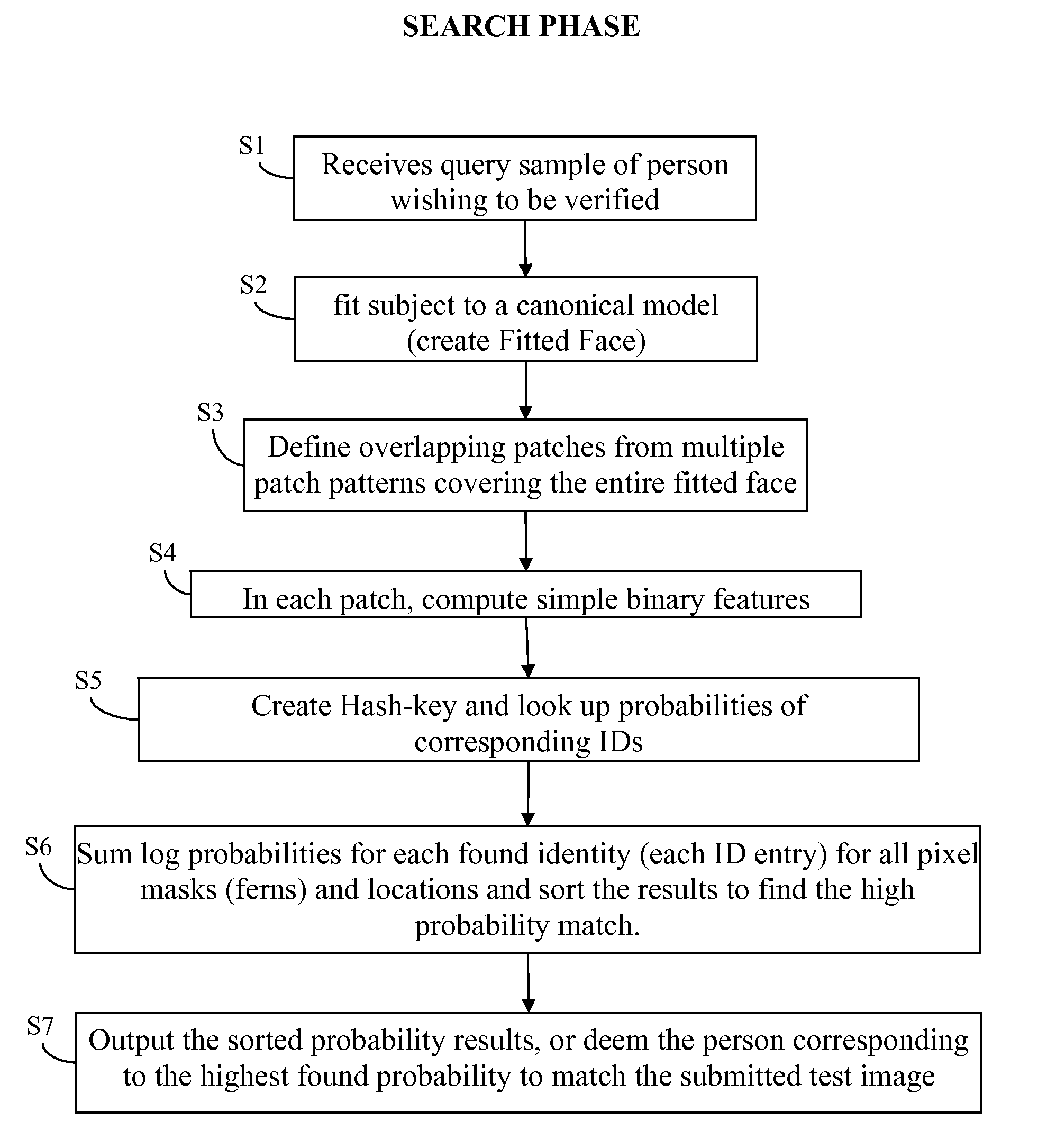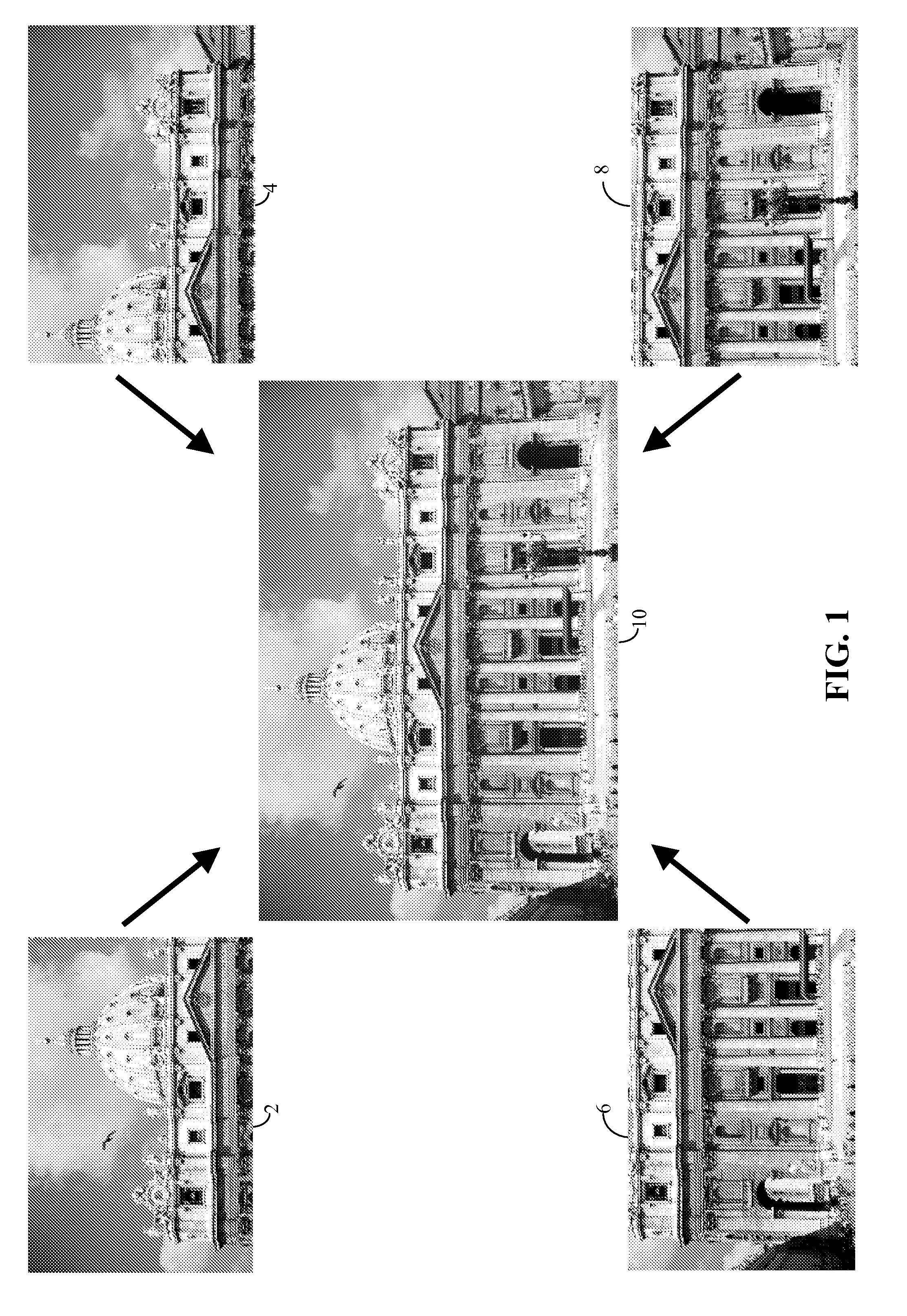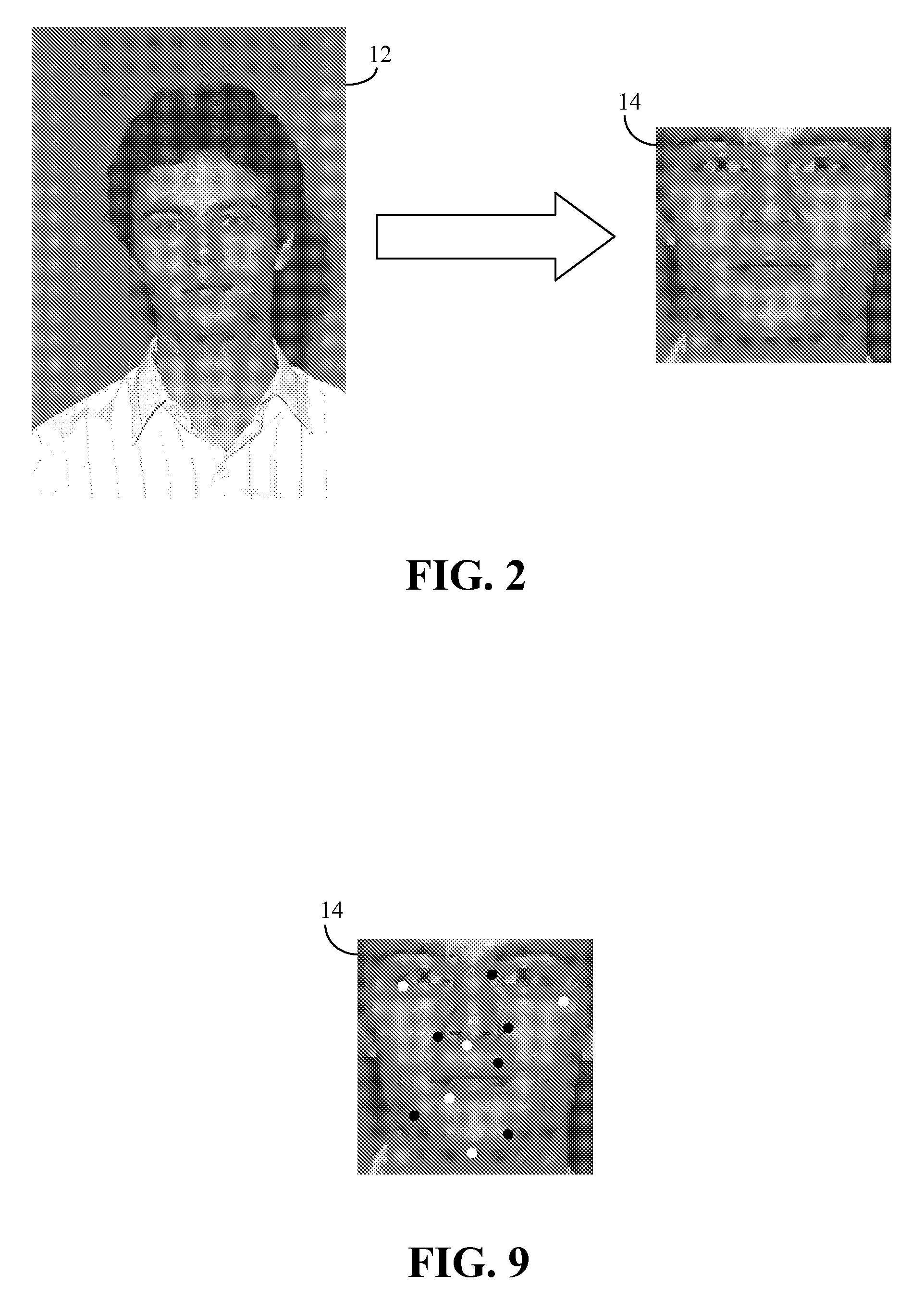Hash-based face recognition system
a face recognition and hash technology, applied in the field of biometric identification, can solve the problems of shape distortion and/or appearance change, inability to use the full library, and inability to apply the exhaustive library approach
- Summary
- Abstract
- Description
- Claims
- Application Information
AI Technical Summary
Benefits of technology
Problems solved by technology
Method used
Image
Examples
Embodiment Construction
[0052]People have many distinctive and personal characteristics that distinguish one person from another. Some examples of these distinguishing characteristics are fingerprints, facial features, vein (or blood vessel) patterns in various parts of the body, voice points, etc. The use of one (or a combination of) such distinguishing characteristics, or traits, to identify (or to verify the identity of) someone is termed Biometrics.
[0053]Biometrics thus involves receiving a test sample of a biometric feature, such as a finger print, and comparing the test sample with a registry of known (i.e. pre-registered) samples in an effort to find a match. Typically, the registry is built by registering known individuals. Each registering individual submits a true sample of a specific biometric feature, which then becomes his registered sample and is identified with that individual. In this manner, the registered sample is known to correspond to a specific (i.e. registered) individual, and a pers...
PUM
 Login to View More
Login to View More Abstract
Description
Claims
Application Information
 Login to View More
Login to View More - R&D
- Intellectual Property
- Life Sciences
- Materials
- Tech Scout
- Unparalleled Data Quality
- Higher Quality Content
- 60% Fewer Hallucinations
Browse by: Latest US Patents, China's latest patents, Technical Efficacy Thesaurus, Application Domain, Technology Topic, Popular Technical Reports.
© 2025 PatSnap. All rights reserved.Legal|Privacy policy|Modern Slavery Act Transparency Statement|Sitemap|About US| Contact US: help@patsnap.com



